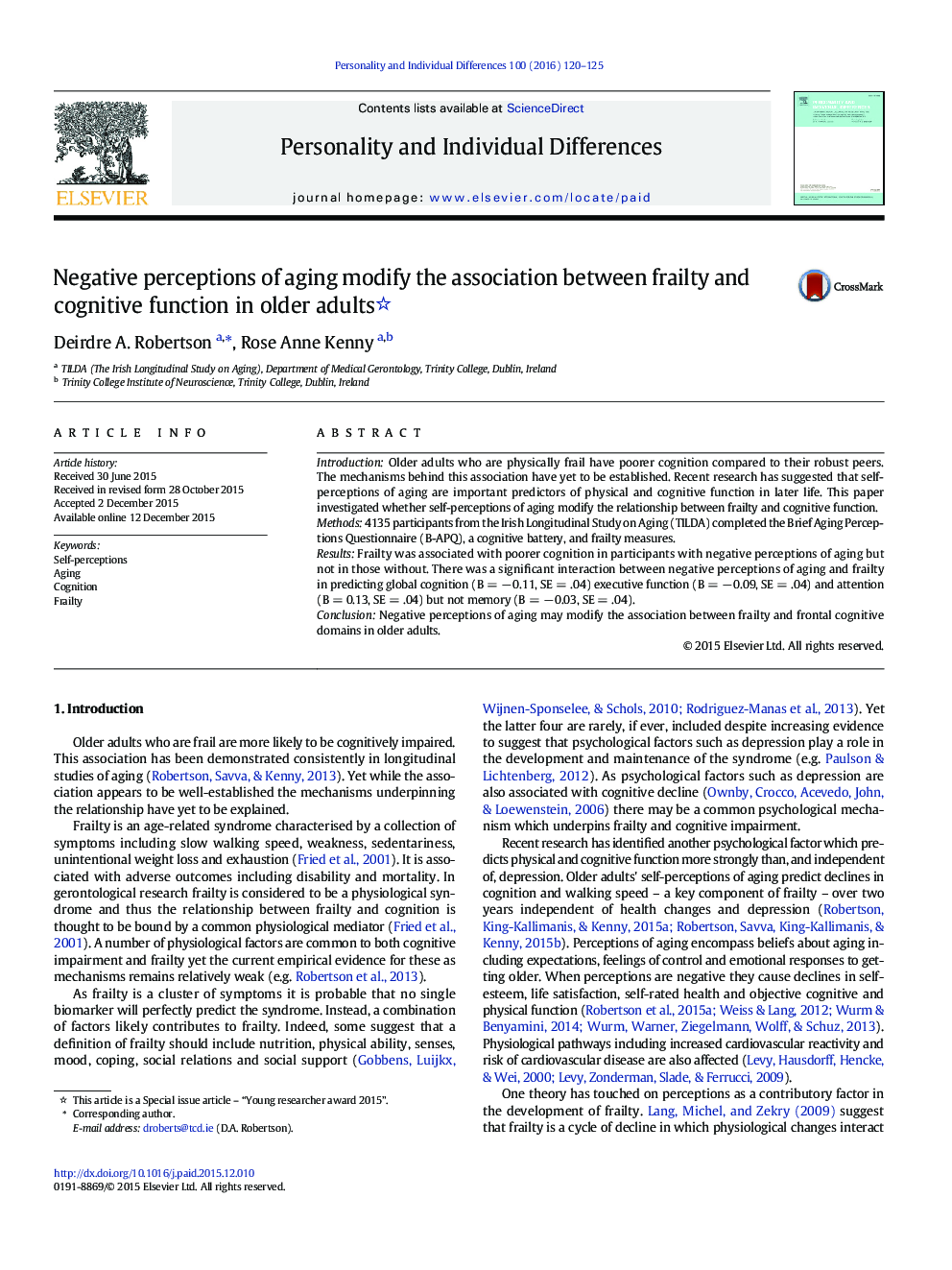| Article ID | Journal | Published Year | Pages | File Type |
|---|---|---|---|---|
| 889634 | Personality and Individual Differences | 2016 | 6 Pages |
•Older adults who are frail have worse cognitive function.•Negative perceptions of aging predict cognitive and physical decline.•Negative perceptions of aging modify the association between frailty and cognition.
IntroductionOlder adults who are physically frail have poorer cognition compared to their robust peers. The mechanisms behind this association have yet to be established. Recent research has suggested that self-perceptions of aging are important predictors of physical and cognitive function in later life. This paper investigated whether self-perceptions of aging modify the relationship between frailty and cognitive function.Methods4135 participants from the Irish Longitudinal Study on Aging (TILDA) completed the Brief Aging Perceptions Questionnaire (B-APQ), a cognitive battery, and frailty measures.ResultsFrailty was associated with poorer cognition in participants with negative perceptions of aging but not in those without. There was a significant interaction between negative perceptions of aging and frailty in predicting global cognition (B = − 0.11, SE = .04) executive function (B = − 0.09, SE = .04) and attention (B = 0.13, SE = .04) but not memory (B = − 0.03, SE = .04).ConclusionNegative perceptions of aging may modify the association between frailty and frontal cognitive domains in older adults.
Graphical abstractFigure optionsDownload full-size imageDownload as PowerPoint slide
